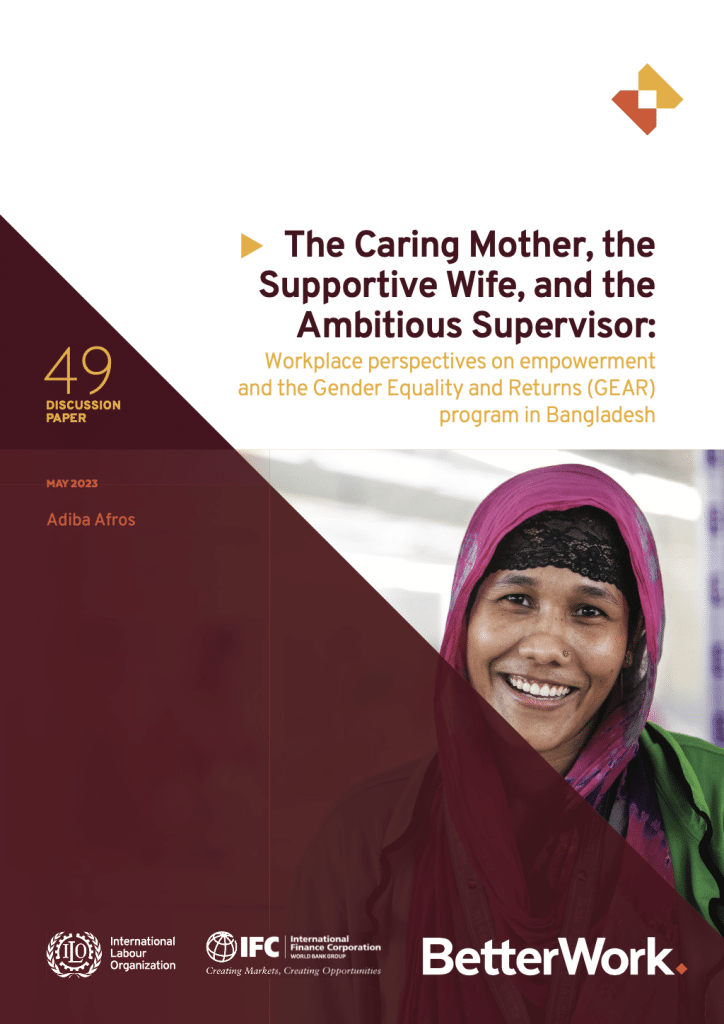| Author | Publication date |
|---|---|
| Adiba Afros | May 2023 |
Workplace perspectives on empowerment and the Gender Equality and Returns (GEAR) program in Bangladesh.
The ILO-IFC Gender Equality and Returns (GEAR) program aims to address the gender imbalances in the garment industry by providing training and career progression opportunities to female sewing section workers, and advisory services to factory management to create an enabling environment for women’s advancement at the workplace. This study qualitatively evaluates the impact of GEAR on women’s empowerment based on perceived changes at the individual- and workplace-levels, and, to some extent, the household-level.
Based on case studies of two garment factories in Bangladesh, it was found that the program led to noticeable changes in the individual participants, but the degree of improvement varied among candidates depending on factors such as personal motivations, constraints, and past experiences. Domestic and childcare roles, maternity periods, and gendered constraints reinforced by workplace and household relations, predominantly shaped and, in several cases, abruptly halted career trajectories of female supervisors. While management’s motivation to support female supervisors largely revolved around meeting production demands, organizational characteristics such as production type and the gender ratio of the workforce, strongly affected willingness to address female supervisors’ performance barriers and create an enabling environment. Based on the findings, the study recommends facilitating discussions with management and workers to co-identify ways to accommodate pregnant and nursing female supervisors at work, creating opportunities for women’s advancement beyond the sewing section, and targeting training efforts to address attitudes and behaviours, particularly of mid-level production staff.
